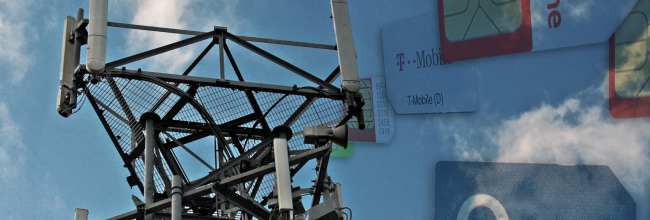O2 and Vodafone Remain Mute about Plans for LTE Networks

I was expecting to have already seen pre-launch campaigns from Vodafone and O2 as they try to stir up interest among customers and claw back EE’s advantage of being first to market. Instead we’ve only seen low-key messages on Web sites and in in-store magazines, telling people that 4G is in the pipeline.
EE’s rivals complained bitterly when it received a green light to deploy LTE in the UK early. But since securing spectrum in February, they’ve been remarkably quiet about their intentions. Last week Vodafone commented only that it will launch “by the end of the summer”, while O2 has made no official statement. Consensus is that a May or June start is most likely.
Make no mistake, these operators are rapidly rolling out networks that will see LTE become the fastest technology ever deployed in the UK. But Vodafone’s guidance suggests that it could be as much as 10 months behind EE by the time it finally comes to market. Given that EE is currently signing up 20,000 LTE customers a week, this is a significant advantage in such a competitive market as the UK.
One theory is that Vodafone and O2 may be waiting for an updated LTE iPhone5 that would be compatible with the frequencies they bought at the auction. But in my view, there’s already a strong line-up of devices that would support the soonest possible start. These include the HTC One, Nokia Lumia 920, Samsung Galaxy S4 and the Sony Xperia Z. The longer EE retains a monopoly on LTE, the more opportunity it has to establish strong brand association with the new technology.
It will be interesting to see how Vodafone and O2 position LTE services against EE when they do launch. Both have already indicated that they will follow suit and charge a premium. This contrasts with 3, which has confirmed that it’ll include LTE access across all existing and new price plans when it launches later in the year.
It’s unlikely that Vodafone or O2 will be able to promote wider coverage at launch: EE’s LTE service already extends to more than 60 towns and cities in the UK, equivalent to more than half the population.
But I do believe that network will be a principal battleground. A shrewd move for EE’s rivals would be to focus marketing effort on the benefits of 800 MHz, a strategy that Vodafone has already hinted it’ll take. At the LTE auction, Vodafone and O2 picked up twice as much spectrum in this band as EE, which remains focused on deployment at 1800 MHz, despite also securing spectrum at 800 MHz and 2.6 GHz.
This is significant, as lower-frequency signals have greater potential to penetrate further indoors. EE’s LTE network has received some criticism for its indoor performance. A focus by rivals on their different frequency holdings could provide a crucial competitive advantage in the fight for customers.

 Twitter
Twitter
 Facebook
Facebook
 LinkedIn
LinkedIn
 Email
Email